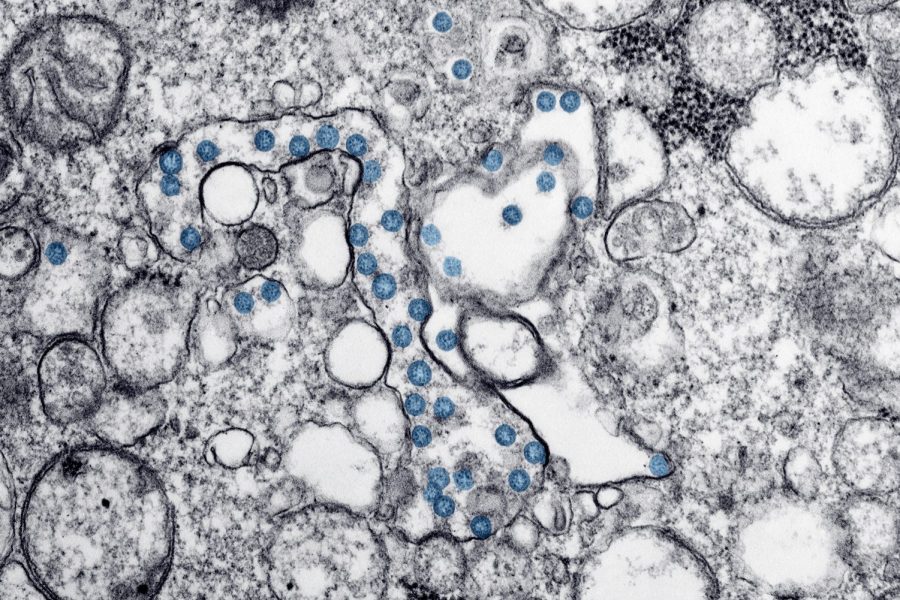U.S. may not reach herd immunity, experts say
pictured is a transmission electron microscopic image of an isolate from the first U.S. case of COVID-19, formerly known as 2019-nCoV. The spherical viral particles, colorized blue, contain cross-section through the viral genome, seen as black dots. (Centers for Disease Control and Prevention)
May 17, 2021
While herd immunity was previously thought of as the way to bring the pandemic to an end, experts say it is unlikely to be achieved.
The World Health Organization defines herd immunity as “the indirect protection from an infectious disease that happens when a population is immune either through vaccination or immunity developed through previous infection.” When enough people are vaccinated, infection no longer spreads from person to person.
Herd immunity is improbable for various reasons, including vaccine hesitancy. An estimated 30% of adults do not want to receive the vaccine. So far, about 34.4% of the total population has been fully vaccinated, and vaccination rates are falling.
Earlier in the pandemic, the threshold for herd immunity to be reached was 60-70% of the population. Now, with the spread of new variants, the number has been adjusted to 80%.
Additionally, herd immunity is difficult to meet due to the size of the U.S. and is not a clearcut endpoint. Vaccination rates may vary across regions due to population density and demographics, negating nationwide herd immunity.
According to The New York Times, “Given the degree of movement among regions, a small virus wave in a region with a low vaccination level can easily spill over into an area where a majority of the population is protected.”
Global vaccination rates are equally crucial in working towards herd immunity because of international travel and currently, “Many less developed countries have barely vaccinated 1% of the population…while merely a handful of nations have vaccinated more than 50% of the population with at least one dose,” states Forbes.
The ultimate threat of failing to vaccinate enough of the population is the development of variants that override vaccine protection.
Experts emphasize the importance of vaccinations even if herd immunity is unreachable. While the virus will most likely never be eradicated, it is predicted to become seasonal like the flu and manageable as long as vaccinations continue. The hope is that sporadic outbreaks will be stemmed with contact tracing and testing.
Said Dr. Ashish Jha, dean of the Brown University School of Health, to CNN, “We may not get to zero, we probably won’t, but if we can get the infections at very low levels, most of us can get back to our lives in normal ways.”








